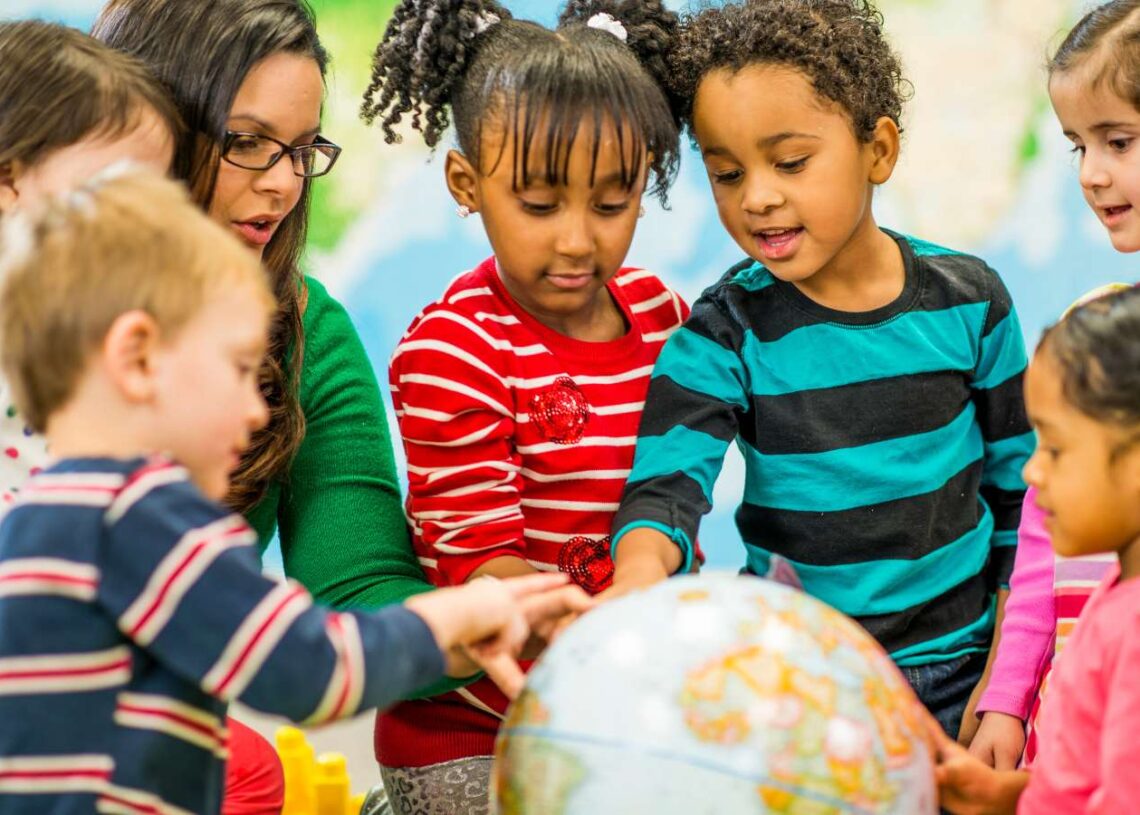Decoding Preschool Philosophies: Finding the Right Fit
Selecting the ideal preschool is a pivotal decision, as a child’s early learning environment significantly shapes their development. Understanding the various preschool philosophies empowers parents to make well-informed choices that resonate with their child’s unique needs and the family’s core values.
Exploring the Landscape of Educational Philosophies
Contemporary preschool education showcases a diverse spectrum of philosophies, each offering a distinctive approach to early learning. Among these, the Montessori method champions independence and hands-on exploration, while the Waldorf approach emphasizes holistic development and a profound connection with the natural world. The Reggio Emilia philosophy, on the other hand, cultivates creativity and collaborative engagement through project-based activities. Additionally, the Bank Street approach is celebrated for its focus on social and emotional growth.
Dissecting the Key Tenets of Each Philosophy
Each preschool philosophy boasts its own set of defining characteristics. For example, Montessori classrooms typically feature mixed-age groups and individualized learning plans designed to cater to each child’s unique pace and interests. In contrast, Waldorf environments prioritize the use of natural materials and strive to maintain consistent teacher-student relationships over several years, fostering a sense of stability and trust. Reggio Emilia schools often implement multi-age classrooms and project-based learning methodologies to stimulate collaboration and teamwork among students.
Navigating Parent Involvement and Program Structure
The degree of parent involvement can vary significantly across different preschool philosophies. Cooperative preschools are heavily reliant on parent participation, with families actively contributing to administrative tasks and classroom activities. Conversely, programs like Montessori and Waldorf generally offer optional parent involvement, allowing families to choose their level of engagement. Furthermore, the structure of the classroom and the curriculum itself can differ considerably depending on the chosen philosophy.
Making an Informed Decision
Choosing the right preschool necessitates a thoughtful consideration of your priorities for your child’s early education. Are you seeking a program that fosters independence, sparks creativity, or cultivates a deep connection with nature? Grasping the fundamental principles of each philosophy can guide you in selecting the option that best aligns with your child’s individual needs and your family’s values.
The following table provides a concise overview of various preschool philosophies:
| Preschool Philosophy | Main Focus/Approach | Classroom Structure | Parent Involvement |
|---|---|---|---|
| Montessori | Child-led, hands-on learning, independence | Mixed-age, individualized | Optional |
| Waldorf | Holistic development, nature connection | Same teacher for years, natural materials | Optional |
| Reggio Emilia | Creativity, collaborative projects | Multi-age, project-based | High |
| Project-based | Learning through projects, inquiry-driven | Varies | Varies |
| Bank Street | Social sciences, whole-child, developmental-interaction | Mixed-age, interdisciplinary | Optional |
| Religious | Faith-based curriculum | Varies | Optional |
| Bilingual (Language Immersion) | Dual-language development | Varies | Optional |
| Cooperative | Parent-led, community focus | Parents hire teachers, shared admin | High |
| High Scope | Active participatory learning, plan-do-review | Child-initiated | Optional |
Data source: Brighterly “11 Preschool Philosophy Educational Models” 2024-09-12
Unleashing Potential: The Power of Child-Led Learning
The realm of personalized education is brimming with exciting possibilities for nurturing young minds. By tailoring learning experiences to each child’s unique needs and interests, we can create an environment where they not only thrive academically but also develop a genuine love for learning.
The Growing Prominence of Personalized Learning
Child-led learning places a strong emphasis on flexibility and personalization within the educational landscape. Rather than adhering to a rigid, one-size-fits-all approach, this philosophy prioritizes adapting to the diverse academic, social, and developmental needs of each individual student. By empowering both parents and students to actively participate in shaping the learning experience, child-led learning fosters a sense of ownership and engagement.
The Rise of Alternative Education Pathways
There has been a notable surge in families exploring alternatives to traditional schooling, indicating a growing desire for more customized educational experiences. Recent data reveals that homeschooling and charter school options are experiencing significant growth, reflecting a broader trend toward tailoring education to individual learning styles and preferences. This shift highlights the importance of providing diverse educational pathways to meet the evolving needs of students and families.
Examining Enrollment Trends in Education
While traditional public school enrollment is experiencing a slight decline, other educational avenues are flourishing, demonstrating the evolving landscape of education.
Adapting to Individual Student Needs
The expansion of educational choices signifies a broader movement toward recognizing and accommodating the unique needs of each learner. Families are increasingly seeking learning models that align with their children’s specific requirements, whether it’s a particular learning style, a special interest, or a need for individualized support. This shift underscores the understanding that unlocking a child’s full potential often necessitates tailored support and a flexible learning environment.
Tailoring Education: Personalizing Early Learning for Success
The journey of early education is undergoing a significant transformation, with personalized learning emerging as a pivotal strategy for fostering individual growth and achievement. This approach acknowledges the unique needs and learning styles of each child, paving the way for a future where education is as individual as the learner.
Q&A
Question 1: What are some of the key concepts that have influenced modern early childhood education, and how do they differ in approach?
Answer: Modern preschool education incorporates various philosophies, each with a unique approach. Montessori emphasizes independence and hands-on learning; Waldorf focuses on holistic development and nature connection; Reggio Emilia promotes creativity and collaboration; and Bank Street prioritizes social and emotional growth. Key differences lie in classroom structure (mixed-age vs. same-age), teaching methods (individualized vs. project-based), and the level of parent involvement (high in Reggio Emilia and cooperative preschools, optional in others).
Question 2: How is personalized learning reshaping early childhood education, and what role does technology play?
Answer: Personalized learning adapts to each child’s unique needs, moving away from a one-size-fits-all approach. This includes tailoring teaching methods and content to suit individual cognitive, emotional, and social development. EdTech plays a significant role by providing interactive and adaptive learning experiences through digital tools and platforms. The US EdTech market for early childhood is experiencing substantial growth, reflecting this increasing demand for personalized learning tools.
Question 3: What is the significance of play-based learning in modern preschools, and how is technology being integrated into this approach?
Answer: Play-based learning emphasizes hands-on activities and imaginative scenarios, fostering cognitive, social, and emotional growth. It encourages problem-solving and critical thinking through active involvement. Technology is increasingly integrated, but experts stress the importance of balancing screen time with real-world play. The goal is to use technology to enhance, not replace, the benefits of physical exploration and social interaction.







